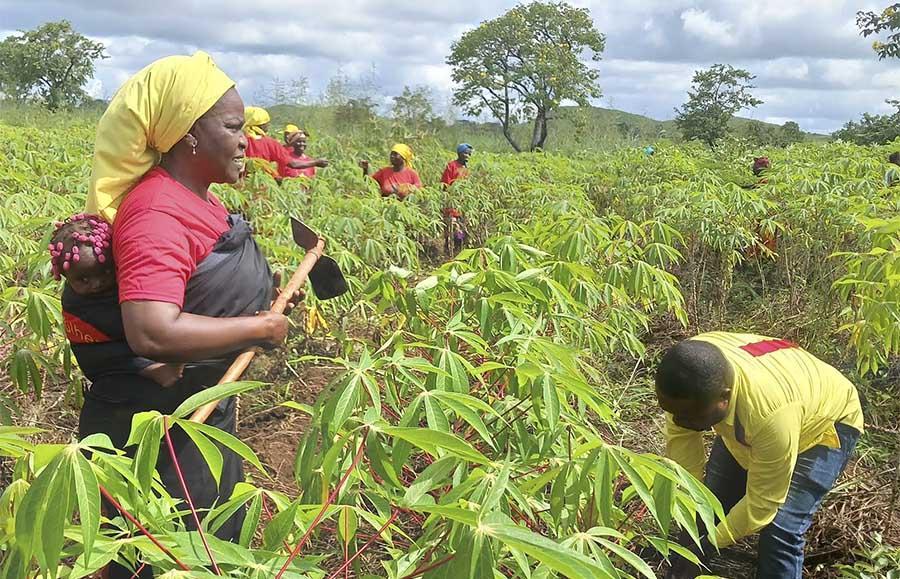Africa-Press – Botswana. Letlhakeng District, specifically Tsetseng, Motokwe, and Dutlwe villages are to benefit from the Improving Agricultural Resilience to Salinity through Development (RESADE) and Promotion of pro-poor Technologies and Management Strategies project in selected countries in the sub Saharan Africa.
The project aims to improve food security and reduce poverty of smallholder farmers, particularly women, in drought and salinity prone areas in the country. Currently, training for facilitators responsible for the implementation of the RESADE Project is underway.
The training is being conducted by the International Center for Biosaline Agriculture-United Arab Emirates in collaboration with the National Agricultural Research and Development Institute (NARDI) and the Agricultural Office of the Letlhakeng District. Among the participants in the training are agricultural extension officers, who are provided with the opportunity to interact with farmers, thereby gaining valuable insights into the challenges encountered in the agricultural sector.
In an overview of the RESADE project, its coordinator Dr Tiny Motlhaodi of NARDI detailed its objective to enhancing agricultural productivity and household incomes in regions affected by salinity. Dr Motlhaodi said this would be achieved through the introduction of salt-tolerant crops and the implementation of best management practices (BMPs) and developing value chains for the newly introduced cropping systems as well as building the capacity of farmers and extension workers in salinity-resilient and climate-smart agricultural practices, in collaboration with national agricultural research and extension services (NARES).
Dr Motlhaodi outlined the project’s structure, which consists of several key components. She said the first component involved the assessment and mapping of salinity-affected agricultural areas and selection of specific sites for project implementation.
The second component, Dr Motlhaodi said focused on the participatory development of improved salinity management technologies and practices at Best Practice Hubs (BPHs), along with related capacity-building initiatives. This, she said included the establishment of BPHs in each targeted area to test new crops, forages and integrated farming approaches under local conditions.
In the region she said experiments and demonstrations were planned to take place at the Ithuseng community trust land in Tsetseng. She said management practices such as irrigation would be implemented and that the project would evaluate soil amendments to enhance crop tolerance to varying levels of salinity. The impact of these amendments on crop productivity under saline conditions will also be assessed.
The third component, she said entailed the scaling up of climate-smart and salt-resilient agricultural production systems from BPHs to the broader farming communities in the targeted areas. She said this included the establishment and strengthening of community-based seed production and processing units for the newly introduced crops and forages, along with the provision of training and equipment.
Additionally, she said value chains would be developed by creating linkages between farmers’ cooperatives, credit institutions, input suppliers, processors, and local or regional markets. She said the fourth component was the development of a dedicated project web portal for sharing data and information among stakeholders, as well as the production of educational DVDs featuring videos and audio content in local dialects for dissemination to farmers and extension workers. This component she said included an assessment of existing irrigation and drainage infrastructure, with proposals for optimal rehabilitation and upgrading solutions.
“It will also deal with the review of water use policies, laws, regulations, and associated institutions, including users’ associations, which will be conducted to compare them with international best practices in terms of comprehensiveness and effectiveness,” she said.
While the fifth component will address monitoring and evaluation part, which will involve tracking the total number of farmers trained, disaggregated by gender, as well as the number of farmers who have adopted successful technologies and the total hectarage cultivated under these technologies. This component, she said would also determine the number of farming cooperatives that have been established or strengthened.
For More News And Analysis About Botswana Follow Africa-Press






